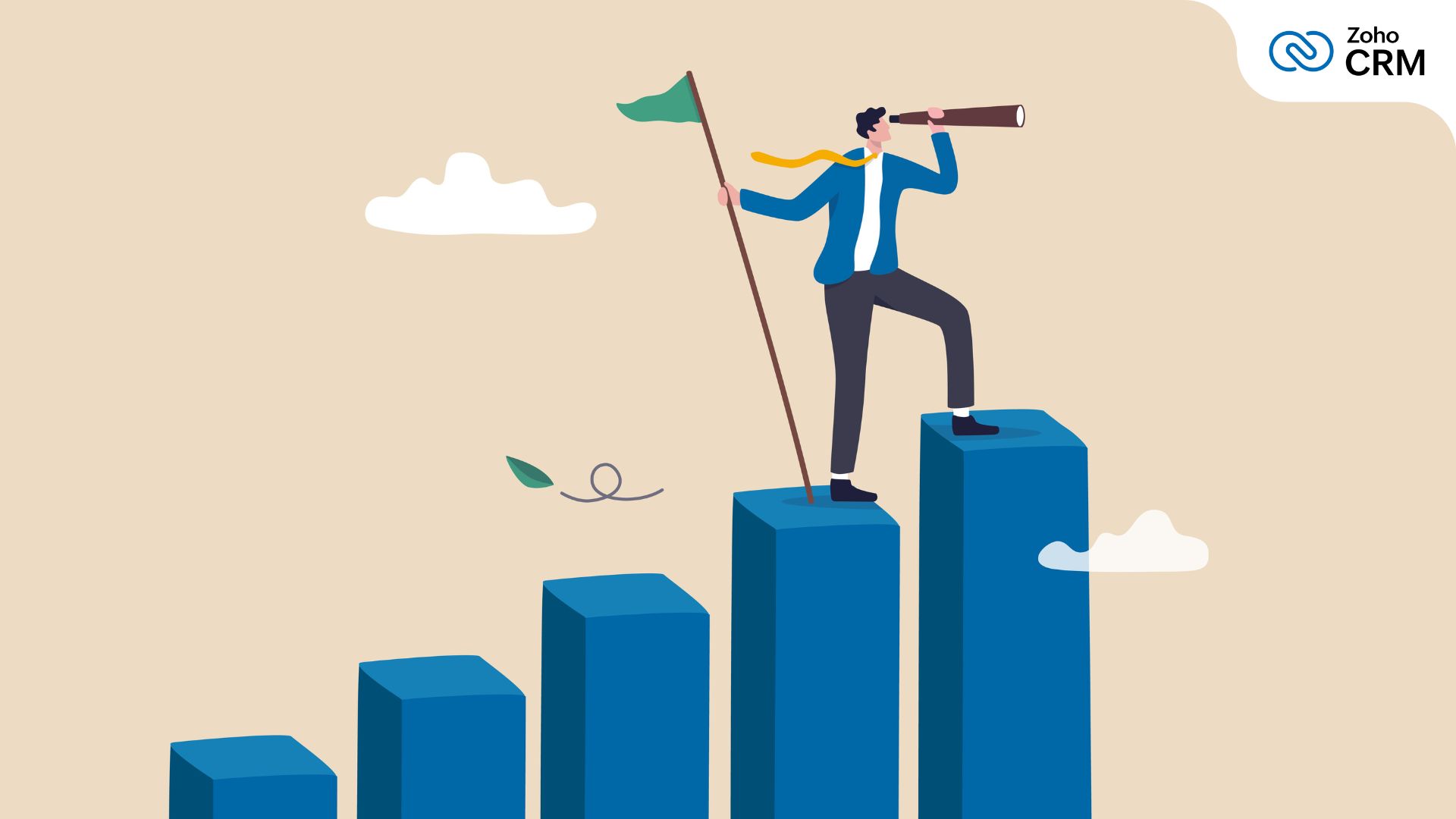Make ‘Em Laugh: Why Humor Is the Secret Ingredient Missing from Your Sales Pitch
- Last Updated : August 7, 2023
- 805 Views
- 6 Min Read

Despite what you’ve probably heard, deals don’t always hinge on rehashing a laundry list of product features, emphasizing financial savings, or delivering a persuasive closing line. Making more meaningful and fruitful buyer connections starts with making more human connections, and one of the most effective ways salespeople can do this is through humor.
Easier said than done. Salespeople already deploying well-timed jokes or engaging stories are well aware of their benefits. But not everyone has the confidence or the experience to step out of their comfort zone and take this risk, especially when the fear of bombing and losing a big deal looms over every setup and punchline.
The good news is that a lot of salespeople already have the makings of above average comedians: Both roles require talking to strangers, both have outgoing personalities when necessary, and both have a knack for staring down rejection on a daily basis.
Most importantly, comedians and salespeople both have a plan of attack and spend hours honing and perfecting that plan until it’s just right. So let’s look at a few ways you can start incorporating humor and to ensure you’re rewarded with a laugh and not a rotten tomato.
Using humor to build trust and alter influence behavior
Sales is no longer about being pushy or guilting someone into buying. It’s about listening to someone’s needs, establishing trust, and building meaningful relationships that eventually result in a partnership. Feeling free and safe to laugh means that on some level you trust someone, and for salespeople, this initial camaraderie can blossom into future deals and business.
The first benefit of using humor in sales is making connections and building rapport. Think about the last time you interacted with a salesperson. Chances are the likelihood of you making a purchasing decision didn’t come down to price or a specific feature, but on whether you felt a genuine connection. That’s because we tend to make buying decisions with our gut, especially when so many products have relatively similar features or price points.
Smiling and laughter also impacts a person’s mood. A prospect who answers the phone after a stressful morning is more than likely not in the right state of mind to listen to a sales pitch and eventually reach for his or her credit card. Easing the tension through humor can make a person feel more optimistic, energetic, and happier, so they’re far more likely to buy or at least resist the impulse to hang up the phone immediately.
Humor is also instrumental in persuasion. When you effectively deploy humor or deliver a funny and thoughtful joke, it grabs your prospect’s attention, sets the mood for the interaction, and breaks the tension that often hangs over a sales pitch. We all enter into sales conversations with some level of apprehension and skepticism, and when we laugh, we let our guard down and immerse ourselves in the moment. When prospects reach this comfort level, you can move past mental roadblocks, go deeper into their needs, and develop a solution that offers real value.
When humor doesn’t work
In the echelon of humiliation, is there anything more cringe-worthy than watching a standup comedian bomb? The awkward silence. The one or two “I feel sorry for you” snickers from the back of the room. The long sips of your drink while you stare at the ground, avoiding eye contact with the man or woman sweating on stage. My skin’s crawling just thinking about it.
When humor works, it can be extremely beneficial, but let’s face it, not everyone’s sense of humor is the same and there’s a real chance that it can backfire. Luckily, there are a few ways you can be proactive in ensuring your prospects are laughing with you and not at you (behind your back).
It should go without saying, but the most important thing to remember when using humor in sales is to avoid controversial or potentially offensive topics that may play in front of certain crowds, but should never be said in the cold light of day or in a professional setting. Remember, you’re still a professional, and an expert in your field so act like it. The best way to do this is to consider the joke from the perspective of the prospect and his or her background or point of view.
It should go without saying, but you should never tell racist or sexist jokes no matter where you are, but especially during a sales call or meeting. And in today’s climate, it’s also a good idea to avoid political humor unless you want to offend someone and end your chances of the sale before it gets off the ground.
It’s also a good idea to stay away from sarcasm as it often comes across as rude, and your tone can be easily lost or misunderstood across phone, email, or between people of different cultures and backgrounds. Remember, the fewer tools you have to communicate—inflection, facial expressions, body language—the more cautious you should be in your humor.
Another style of humor that can potentially be effective but is difficult to pull off is self-deprecation. Sure, a small joke about your weight or receding hairline can remind prospects that you’re human, but it’s best to avoid jokes about your brand or product. The line between professionalism and unprofessionalism is fluid and hard to define but is always present, and salespeople are more precariously perched atop it than they might like to believe.
Dropping your professional mask can be an authentic, refreshing, and even charming, but always in moderation. You may think it helps you seem more approachable or likable, but this overt desire to bond can make you look unprofessional and incompetent, resulting in awkward moments that do nothing but hurt your chances of closing the deal.
Humor helps us remember
How many of us can retell a joke or quote a line from a funny movie years after we first heard it? It turns out, there’s a reason for that.
“When we laugh, we relax,” writes Dana Bilsky Asher in the Fast Company article “The Surprising Link Between Laughter and Learning. “As anxiety decreases, our capacity to retain information expands.”
Snorts, snickers, or full-blown milk-coming-out-of-the-nose hysteria are all involuntary responses, but they also unlock a deeper level of learning and remembering. Relaxing is essential to learning so if you want someone to remember something, wrapping the lesson up in laughter can be the perfect package.
Psychologists call this phenomenon the humor effect. When we hear or see something we perceive as funny, not only do we pay more attention, but also process the information more effectively. And in today’s world where attention spans are getting shorter and shorter, grabbing someone’s attention early in an interaction with short and vetted joke can make a big difference.
Be (the funniest version of) yourself
Knowing you can use humor in your sales interactions alone won’t make you a standup comedian. Some people are naturally funnier than others, but we all have a sense of humor, and we can all learn to be funnier in our daily lives.
For skeptics, immerse yourself in comedy by seeing an improv or stand-up show, listening to podcasts hosted by comedians or watch the hundreds of videos of standup comedians on YouTube. By watching professionals, you can slowly learn from their style and see what topics really connect with their audiences. And remember, as a salesperson, you don’t need a five minute standup set. You need one joke that can be worked into multiple scenarios and with a wide range of prospects.
Most of all, be yourself. The enemy of making people feel comfortable enough to laugh is trying too hard or trying to be something you’re not. After a little trial and error, you’ll find what works for you, and you’ll begin to see the results in your pipeline and commission checks.


